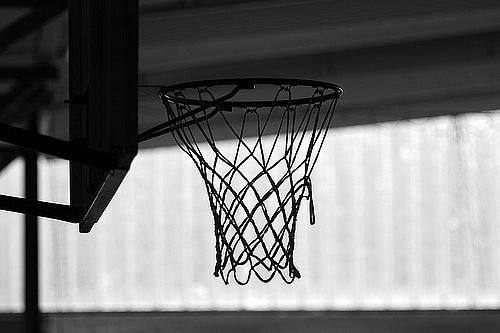Slap: University of Kentucky Has Threatened A Reporter Before

Usually someone thinking of doing something foolish – driving drunk, breaking into a house, using government powers to demand phone records from the Associated Press – starts out with baby steps. A few too many rum and Cokes here. A candy bar stuffed in the pocket there. Then you feel emboldened enough to take the big plunge.
This helps explain why attorneys at the University of Kentucky would think they could sue one of their own reporters with impunity.
Here were some of the baby steps:
In August 2011, the editor for the University of Kentucky school newspaper did something that reporters everywhere do. He heard a rumor and tried to verify it. Aaron Smith, who in addition to managing the Kentucky Kernel also wrote about basketball, heard that there were two new walk-ons joining the team. So he called the players. They confirmed what he had heard, and he wrote a story. Just to emphasize what a non-big deal this was, I’m including all 177 words of the story below:
UK basketball is adding two walk-ons for the upcoming season. Brian Long and Sam Malone each confirmed via phone Monday morning they would be on the team.
This followed Anthony Davis’ tweets Sunday night that Malone and Long would be playing for UK this season.
Malone, who is from Massachusetts, said he had known since the spring that he would be coming to UK and said he had known UK head coach John Calipari “for a while. I’ve been going to his camps forever.”
Brian Long is the brother of former Memphis player Travis Long. The family was all part of the basketball program at River Dell high school in New Jersey, where Brian’s dad was the coach and Brian and his two brothers each played. Read that story here.
Malone played for Scituate high school in Massachusetts. More than a year ago, he did a quick five-question interview with a Boston newspaper. One of the first Google searches of his name yields this article about the death of one of his closest friends in his school.
The University of Kentucky did not like this, and so it retaliated. It barred Smith from covering the school’s annual event allowing reporters to interview team members. Here’s how Poynter described this situation:
The university says Smith broke the athletic department’s unwritten policy barring media from interviewing student-athletes without first going through media relations department. The decision to ban the writer “is so clearly a violation of First Amendment rights for the university to condition access on gathering or publishing information the way the university wants you to do it,” says Kentucky First Amendment lawyer Jon Fleischaker.
The reaction was immediate. Both the Associated Press Sports Editors and Associated Press Managing Editors wrote letters to the school and to state Attorney General Jack Conaway urging the university reconsider its actions.
Michael A. Anastasi, the APSE president at the time wrote:
You have referred to an “unwritten” rule and an “understanding” between the media and the university that all interview requests must go through the SID department. Clearly, something as vague as an understanding is not legally enforceable or should a violation lead to punishment. It would be like giving a speeding ticket to a car driving through an area with no speed limit and saying, “Well, everyone knows you should be going 65.”
There is also the abridgement of basic First Amendment rights to decide access issues based on what the publication writes. This is a form of censorship, something institutions of higher learning should find as repulsive as the media do.
Let’s hope news organizations and outlets rally around Brenna Angel in the same way. This time, the University of Kentucky has become so emboldened that the school is going far beyond cutting off access to an event.
Have your own thoughts on what can be done in response? Send a note to askantidote@gmail.com or via Twitter @wheisel.
Image by acidpix via Flickr
Here are more of Heisel's posts on the University of Kentucky court case:
Slap: University of Kentucky Sues Its Own Public Radio Reporter
Slap: University Says It Sued Reporter to Protect Patients
Slap: Kentucky Court Case Could Slam Door on Patient Safety Information
Slap: University Fighting Access to Patient Safety Records on All Fronts

